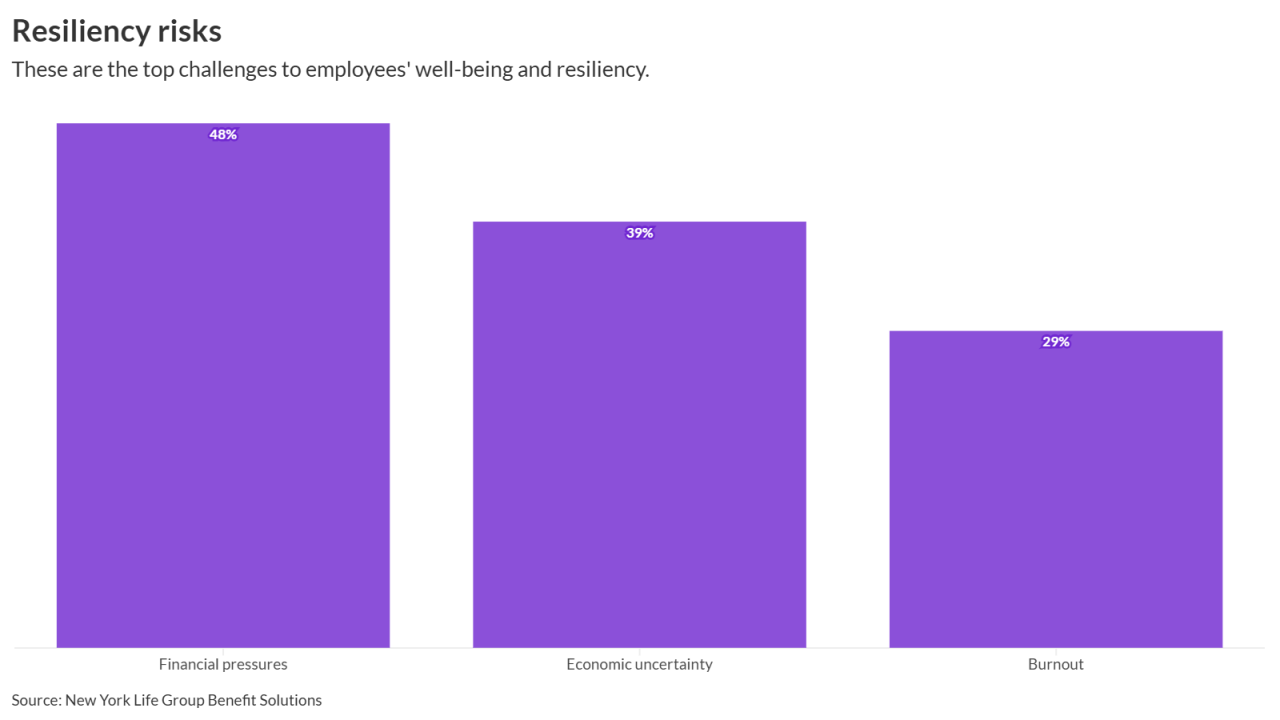Between inflation and what many predict to be an impending recession, the U.S. economy does not make it easy to
While making more money could be seen as the main motivator driving people to add extra work hours, Victoria Schmid, a researcher for Insuranks, says it's not that simple.
Read more:
"It seems that people have their main job so they can pay bills and fit themselves into this timeline of college, getting a job, building a 401(k), buying a house and retiring," says Schmid. "But people may also want the freedom to do something they enjoy, that's flexible and doesn't have the pressure that comes with an office job."
According to Insuranks, 63% said their top reason for a side hustle was "for something to do and a bit of extra cash." Meanwhile, inflation and debt ranked at the bottom, with 28% and 26% noting these financial challenges to be their motivator. Still, 44% work side hustles "to make ends meet," revealing that while money for the sake of survival was not necessarily the foremost reason on people's minds, it was nearby.
Schmid underlines that technology has only made it easier for workers to find side hustles that suit their needs and even passions. With marketplace apps like Etsy, Poshmark and Depop, or service apps like Lyft, Uber and DoorDash, it's never been easier to pick up a part-time job delivering food or spending a few hours selling clothes online, though just 6% of respondents said they did this work on a part-time basis.
Read more:
Of the jobs they did pick up on top of their regular employment, 13% pointed to freelance work, 18% sold items online and 95% claimed taking online surveys as their side hustle. However, Schmid admits that this data may be skewed, given that these respondents were surveyed on a platform that compensates its users.
Regardless, 90% of respondents enjoy their side hustle, and nearly half said they would quit their full-time jobs if they made enough money off their additional work.
"There are people who may be doing their side hustle to start their small business, or they're retired and want something to do," she says. "There's freedom and flexibility, without anyone to report to or micromanage you."
Read more:
While the reasons behind side-gigs seem to be a mix of a need for agency and financial survival, workers may increasingly turn to this option to combat inflation — 51% of respondents shared that inflation is causing them to consider taking an additional side hustle, possibly foreshadowing even more engagement in the gig economy and higher stakes for workers.
"The prices of everything are going up and up, and the holiday season is right around the corner," says Schmid. "People will either have to figure out their savings or make more money. If we did this survey in six months, we would see different results."





